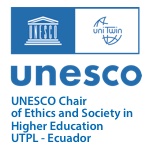Communication, intercession of the sacred and religious sacrifice
Abstract
Starting from the meaning of «sacrifice», this article demonstrates the importance of sacrifice in the religious experience and supports the thesis that the practice of sacrifice has always been «extra-ordinary» (beyond what is usual; highly exceptional) and functions as a privileged form of communication and intercession with the sacred. In the religious experience, the promisor opts for the sacrificial practice as a demonstrative moment and act of radical surrender to the religious cause and faith. This article follows a theoretical and conceptual approach. The objective is to argue the pragmatic effects of sacrifice in cementing faith and religious experience.
Downloads
References
Baudrillard, Jean (1972). Pour une critique de l’économie politique du signe. Paris: Gallimard. [trad port.: Para uma crítica da economia política do signo. Trad. de Aníbal Alves. Lisboa: Edições 70, 1981].
Borges, Anselmo (2010). Religião e diálogo inter-religioso. Coimbra: Imprensa da Universidade de Coimbra.
Caillois, Roger (1950). L’homme et le sacré. Paris: Gallimard. [trad port.: O homem e o sagrado. Trad. de Germiniano Franco. Lisboa: Edições 70, 1988].
Dennett, Daniel (2006). Breaking the spell: Religion as a natural phenomenon. New York: Viking Press. [trad port.: Quebrar o feitiço: A religião como fenómeno natural. Trad. de Ana Saldanha. Lisboa: Esfera do Caos, 2008].
Durkheim, Émile (1912). Formes élémentaires de la vie religieuse. Paris: F. Alcan. [trad ing.: The Elementary forms of religious life. Trad. de Karen E. Fields. New York: The Free Press, 1995].
Eliot, T. S. (1948). Notes towards the definition of culture. London: Faber and Faber. [trad port.: Notas para a definição de cultura. Trad. de Ernesto Sampaio. Lisboa: Século XXI, 2002].
Gaarder, Jostein (1997). Religionsboka. Oslo: Gyldendal Norsk Forlag AS. [trad port.: O livro das religiões. Trad. de Ana Paula Tanque. Lisboa: Editorial Presença, 2007].
Hesiod (1996). Works and days. [trad ing. de: D. W. Tandy & W. C. Neal] Berkeley: University of California Press.
Mauss, Marcel (1950). Essai sur le don. Paris: Press Universitaire de France. [trad port.: Ensaio sobre a dádiva. Trad. de António Filipe Marques. Lisboa: Edições 70, 1988].
Otto, Rudolf (1917). Das Heilige. Aufl. Breslau. [trad port.: O sagrado. Trad. de João Gama. Lisboa: Edições 70, 2005].
Rodrigues, Adriano (1999). Comunicação e cultura: A experiência cultural na era da informação. Lisboa: Editorial Presença.
Santo Agostinho (1928). De Civitate Dei. Leipzig: Teubneriana. [trad port.: A cidade de deus. Trad. de J. Dias Pereira. Lisboa: Fundação Calouste Gulbenkian, 2017].
Tillich, Paul (1969). What is religion? New York: Harper & Row Publishers. [trad cast.: Filosofía de la religión. Trad. de Marcelo Pérez Rivas. Buenos Aires: Ediciones Megápolis, 1973].
Copyright (c) 2021 ©️ Analysis

This work is licensed under a Creative Commons Attribution-NonCommercial-NoDerivatives 4.0 International License.








